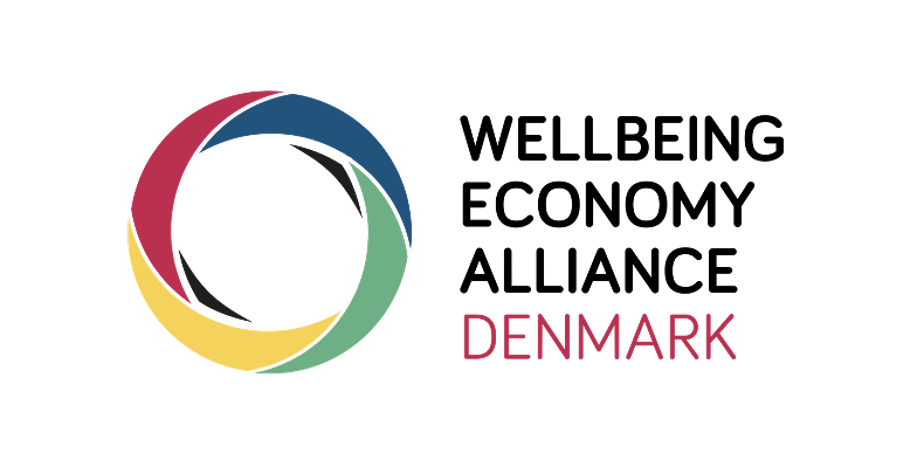This blog was written by James Canavan, Intern with Oxfam Novib

Introduction
During the latest Wellbeing Economy conference held in Copenhagen last month, two standout sessions organised and featuring Oxfam colleagues involved in the Fair Tax Monitor delved into the topics of renouncing green extractivism in Europe’s energy transition and the role of tax as a tool for the green transition. The sessions united on the goal of enabling the just transition. In the session on green extraction and Europe’s energy transition, the speakers delved into the structures being created by the EU to limit the social and environmental impact of the transition at the source of extraction and throughout the supply chain. Conversely, the session held on tax as a tool of green transition took a systemic approach to exploring how tax policies can play a role in limiting extraction and emissions from industry as well as addressing economic and climate inequality. In exploring how these sessions can build off each other, we’ll look at the key themes of each.
Green extraction and Europe’s energy transition
Economically, while extractive industries can boost national revenues through taxes, royalties, licenses and fees, the benefits are unevenly distributed. Local communities often see little gain and royalties from the extraction, with profits diverted by corruption and weak governance, perpetuating poverty and underdevelopment. These impacts underpin the need for new sustainable and ethical extraction practices to ensure Europe’s energy transition benefits do not come at the expense of vulnerable communities and environments.
Two recent developments taken by the EU to combat these issues are the Critical Raw Materials Act (CRMA) and the Corporate Sustainability Due Diligence Directive (CSDDD). The CRMA is designed to secure the supply of essential minerals whilst also improving the environmental and social standards within the supply chain. It does this by establishing 5 pillars as the foundation of the act[1]:
- Setting clear priorities for action, by identifying a list of critical raw materials and domestic capacities in the EU
- Building capacities within member states, by improving access to finance and exploring national reserves.
- Improving resilience of the EU’s ability to withstand disruptions in the supply chain, by improving monitoring capacity
- Investing in research, innovation and skills
- Promoting a circular critical raw materials economy
Following heated political discourse resulting in a watered-down directive, the CSDDD mandates that large companies operating within the EU must conduct thorough due diligence on their supply chains to identify, prevent, and mitigate adverse human rights and environmental impacts[2]. This includes the requirement to engage with stakeholders, establish grievance mechanisms, and integrate due diligence into their corporate policies. Moreover, in light of, this companies are expected to assess risks, implement measures to address them and report on their efforts transparently. In practice, this could result in improved conditions and practices in the extractive industry since companies will be made aware of practices in their supply chains.
While these developments provide a promising start for improving the social and environmental impact of extraction, there still leaves a lot to be desired. Regarding the CRMA, the act heavily focuses on securing mineral supply, often prioritizing economic interests over stringent environmental and social safeguards. Furthermore, the main issue the CSDDD faces is enforcement; there are concerns about the capacity of the EU to monitor and enforce these standards effectively in industries with a highly global and complex supply chain such as the extractive. Given these limitations, some critics call for the EU to establish stronger and more direct tools to target polluters and extractive companies involved in human rights and environmental devastation, such as introducing new taxes.
The Role of Taxation
Taxation plays a crucial role in driving a sustainable and socially just energy transition, e.g. by complementing the role of industrial policies to boost the financial incentive for companies to change their practices.
Balancing social and environmental impact was a key discussion at the conference. For instance, carbon taxes make polluting activities more expensive and thus encourages consumers to buy products based on cleaner technologies[3]. However, carbon taxes violates climate justice principles as they are most often regressive meaning that they tend to put a disproportional burden on lower income groups which ironically are those least responsible for the climate crisis.
Moreover, taxes on carbon emissions and fossil fuels extraction can increase the extraction of rare minerals to produce cleaner technologies and thus the risks described above For example, higher taxes on petrol and diesel incentivize consumers to purchase electric vehicles resulting in the extraction of lithium.
To address this, tax policies should penalizing unsustainable practices and offering incentives for environmentally and socially sustainable methods. Part of the revenues from these taxes should be reinvested into affected communities and environmental restoration projects, ensuring that the benefits of Europe’s energy transition are shared equitably and responsibly.
Lastly, while taxation must play a pivotal role in the transformation to an environmentally sustainable and socially just extractive industry, other systemic changes are equally essential. This includes industrial policies, stronger international cooperation, enhanced transparency and accountability mechanisms, and more rigorous enforcement of existing regulations. As Europe moves towards its goal of climate neutrality, it is crucial to adopt a holistic approach that considers the environmental, social, and economic dimensions of mineral extraction.
Looking forward, the Fair Tax Monitor aims to continue its work to reduce inequality while supporting a green and just transition with a green FTM report being developed and due for launch later this year.
[1] ‘European Critical Raw Materials Act – European Commission’ (n 1).
[2] ‘Corporate Sustainability Due Diligence – European Commission’ <https://commission.europa.eu/business-economy-euro/doing-business-eu/corporate-sustainability-due-diligence_en> accessed 14 June 2024.
[3] ‘Carbon Tax Basics’ (Center for Climate and Energy Solutions) <https://www.c2es.org/content/carbon-tax-basics/> accessed 14 June 2024.
